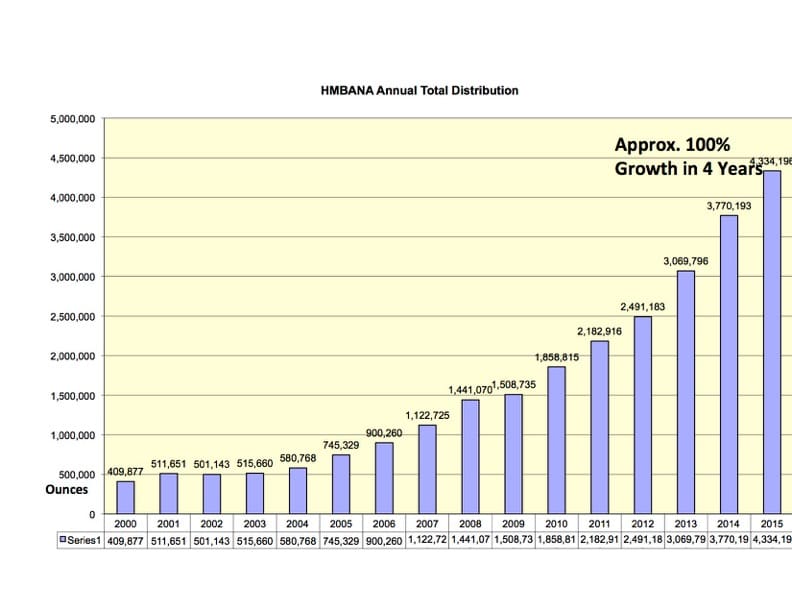A day of celebration and awareness
Today, May 19, 2016, is World Day of Human Milk Donation. On this day we honor all moms who donate milk to nonprofit milk banks, everywhere in the world. At the recent international conference of the Human Milk Banking Association of North America, we met and heard from milk bank movers and shakers throughout the world. Milk banking is saving lives and promoting the importance of human milk and breastfeeding in countries and cultures all over the world.
To celebrate World Day of Human Milk Donation, here are some common questions and concerns we hear about donating to and receiving donor milk from HMBANA milk banks.
Donating Milk
Q: I want to donate milk. How do I become a donor?
Each HMBANA milk bank has a similar donor screening procedure. Visit our donor page to learn more about the process and eligibility.
Q: I can’t donate milk because there is no milk bank in my area.
A: Milk banks gratefully accept donations of milk from donors far and wide. The donor screening process takes place by phone, e-mail and online. Blood tests can be done wherever donors live. Overnight delivery services and dry ice allow donors and milk banks to ship milk safely throughout the country.
Q: Blood tests and shipping are expensive. I can’t afford to be a donor.
We are very grateful to our donors for the precious time and milk that they donate to help others. The milk bank covers all expenses of donation, including blood tests and shipping milk.
Q: I want my milk to help babies in my community, not three states away.
Milk donation helps your community in two important ways:
- The milk bank closest to you likely serves hospitals and families in your area;
- Your donating milk educates your friends, neighbors, family, and community members about the value of breastfeeding, human milk, and milk donation.
Q: Why don’t milk banks pay donors for their milk?
Decisions and policies about payment for sharing and donation of other body parts and fluids—blood, semen, organs, eggs—continue to evolve. However, for reasons of safety and equitable and ethical distribution of donor milk, HMBANA milk banks do not pay donors for their generous gift.
Women have shared milk with others’ babies since there have been mothers and babies. Often milk sharing is an unpaid act of kindness. Since there have been social and economic classes, money and goods to exchange, women have been willing to pay and be paid for nursing. There have also always been ethical concerns with paying for milk, including its effect on the safety of the milk being shared and also on the mothers and babies selling it.
Geography and Milk Supply
Q: My hospital can’t get donor milk because there is no milk bank in my area.
A: HMBANA milk banks ship milk to hospitals and families in all 50 US states and 5 Canadian provinces. Milk is shipped frozen on dry ice using overnight delivery services. This ensures that milk will arrive safely and still frozen, even if there is no milk bank in your area. If your hospital is not yet receiving donor milk, it it will take some time to set up a program that is compliant with hospital protocols. The milk bank closest to you can provide information and support through the process.
Q: There is no milk bank in our state, so if there is a shortage, babies in our state will not be able to get donor milk.
A: HMBANA milk banks are dedicated to ensuring access to babies in need. The clinical guidelines under which all HMBANA milk banks operate include a triage for who receives milk in case of a shortage. It is based upon the medical needs of the babies, not geography.
Q: The reason premature and fragile babies can’t get donor milk is that there are not enough milk banks to serve all those in need.
A: Use of donor milk in a hospital is a matter of hospital policy, not number of milk banks. Milk banks and HMBANA work to educate hospitals, physicians and other health care providers about the safety and appropriate use of donor milk for their most fragile babies.
Additionally, HMBANA and its member milk banks are committed to ethical distribution of donor milk to babies with medical need, regardless of their financial status. Research has shown that hospitals that serve poor communities are less likely to use donor milk. HMBANA cannot solve this problem alone, but is working with government agencies and hospitals to address it.
Q: There is a huge shortage of donor milk.
A: HMBANA is growing and its milk banks dispense more milk every year, increasing distribution tenfold since 2000 and doubling in the last four years alone. Individual milk banks experience ups and downs in supply and demand. However, collectively, HMBANA milk banks meet current demand for donor milk for fragile babies.
Through education HMBANA is working to increase the demand, the number of hospitals using donor milk for its most vulnerable babies, and to increase supply through community education of milk donation.
On World Day of Human Milk Donation our heartfelt thanks to:
All who donate their milk to help other babies and families in need.
All who work to ensure that safe and ethical distribution of milk.
All who educate about the value of human milk and breastfeeding for all babies.
Your work saves lives!









